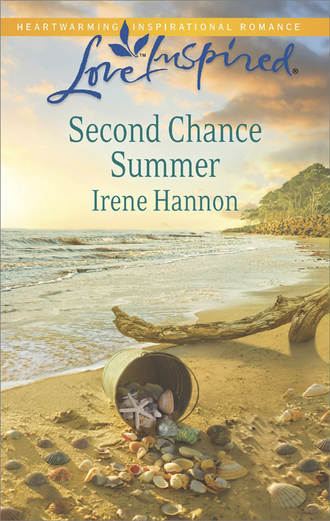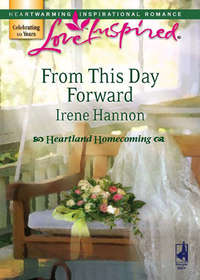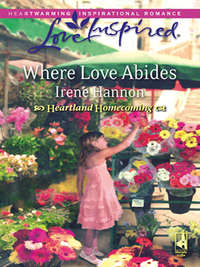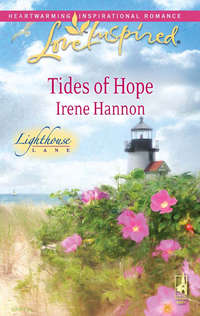
Полная версия
Second Chance Summer
Eleanor set the folder on the glass-topped kitchen table and sighed. “Not great. If we had any additional money, we could pay people to do the renovations. But we needed every penny in the fund to buy the house, even though the sellers gave us a great deal and took part of the value as a tax write-off. With some of our key volunteers sidelined, we just don’t have the manpower to get the job done.”
“I’m sorry. I know how important this project is to you.”
“Thank you, my dear.” Her aunt patted her hand. “I guess I’ll make the cancellation calls to the rest of the families in the morning, between customers at the gallery. Right now, I believe I’ll take a bath and call it a night. Are you all set for your first program tomorrow?”
“Yes. Organizing the art supplies I hauled down from Richmond and getting the lay of the land at the hotel were my priorities today.”
“Did you work in any beach time?”
“A couple of hours—only because Bandit made me go.”
The golden retriever looked up at her and wagged his tail.
“Good for him. R&R is wonderful for the soul. Did you see Fletch again?” A spark of interest kindled in the older woman’s eyes.
“No. He probably found a beach closer to Louise’s house.”
This was the perfect opportunity to discuss last week’s obvious setup...but in light of the problems her aunt was dealing with, Rachel didn’t have the heart to bring it up. Besides, it was a moot point. If she’d read him correctly on Sunday, Louise’s grandson had been as miffed about their respective relatives’ manipulation as she was—which had flopped, in any case. There wasn’t much chance he’d want anything further to do with the rude woman who’d gawked at his artificial leg and sicced a seventy-pound dog on him.
“I suppose so.” Eleanor positioned the folder in the middle of the table, opened it and riffled through the sheaf of papers. “Such a pity to disappoint so many people.” She expelled a long breath and turned away. “Waffles at eight?”
“You don’t have to spoil me. A bowl of cereal is fine.”
“Nonsense. You can eat cereal at home. A visit to Jekyll Island should be filled with special treats.” Her aunt winked. “But if it makes you feel better, I’m glad to have an excuse to eat real breakfasts myself for a few weeks a year. The rest of the time I subsist on cereal, too.”
They had the same conversation every summer, and as usual, Rachel capitulated. “In that case...I’ll look forward to it.”
“In the meantime, sweet dreams. Bandit, are you coming?”
The dog rose from his sitting position and trotted after his owner.
As Eleanor disappeared down the hall, Rachel drummed her fingers against the countertop. It wasn’t even ten yet. Too early for bed and too dark to go for a walk on the beach. TV held no appeal, and if she dived back into the taut thriller she’d taken to the beach earlier she’d stay up far too late reading just one more page.
Maybe she’d end the day with a soothing cup of herbal tea.
Choosing a bag from her aunt’s large selection, she eyed the folder on the table. It was a shame about the church project—though she’d always thought it too ambitious for the aging congregation. Still, she couldn’t fault their generous spirit. They were living the values Reverend Carlson preached from the pulpit every Sunday and doing God’s work.
So why had He allowed obstacle after obstacle to disrupt their efforts to serve Him?
She tossed the bag in a mug, answers about the Almighty eluding her, as usual.
But she wasn’t going to let herself grow bitter. She would cling to the belief that He had plans for her welfare, not her woe. Plans to give her a future full of hope. Holding fast to that verse from Jeremiah was what had gotten her through the losses. That, and the love and support Aunt El had offered once her parents and brother had returned to their far-flung homes.
After filling the mug with water, she set it in the microwave, strolled back to the table, and leaned over to examine the contents of the open file. Twelve sets of stapled documents were on top, each containing two or three pages. The six at the back were held together with a binder clip. Those must be the people who’d already lost their chance to visit Jekyll, based on the arrival dates noted at the top of the cover sheets.
Rachel refocused on the set at the top of the pile. It was background information on the family slated to participate in the program beginning on July 14—in less than five weeks.
Joseph and Sarah Mitchell, ages thirty-seven and thirty-four, and their four children—Aaron, nine; Nicole, seven; Angela, four; Peter, six months. Joseph was an IT technician who’d been out of work for eight months...a victim of overseas outsourcing, according to the write-up from his minister. Hard-worker, regular churchgoer, loving father, devoted husband—the accolades were abundant. He was taking odd jobs to make ends meet, but they were struggling. On top of all that, they’d lost their oldest son in a bicycle accident a year ago. The stress had extracted a toll on everyone, and the family was in desperate need of a brief respite.
The microwave beeped, and Rachel wandered back to retrieve her tea.
If every story in the file was that heartrending, it was no wonder the sparkle in her aunt’s eyes had flagged at the thought of having to deliver more bad news to families who’d already borne more than their share of difficulty.
Dipping the bag in the hot water, Rachel returned to the table. A quick scan of the remaining sets of pages confirmed her suspicion. Every family in the file could benefit from a relaxing, carefree week on Jekyll Island.
As she sipped her tea, the warmth in the ceramic mug seeped into her fingers—just as the stories of these deserving families had seeped into her heart.
Was there anything she could do to keep more of them from being disappointed? She wasn’t a carpenter or an electrician or a plumber, but she could wield a mean paintbrush, knew how to rip up carpeting and wasn’t afraid of heavy-duty cleaning.
Would that kind of contribution make a difference?
Not likely.
But first thing tomorrow, before Aunt El left for the gallery, she’d offer anyway.
And even if her efforts wouldn’t be enough to prevent more cancellations, she’d still pitch in. Because helping with a worthwhile project this summer suddenly held a whole lot more appeal than spending her free time lying on the beach.
* * *
“You’re up early.”
As Gram entered the kitchen, Fletch finished typing the email, hit the send button and angled his wrist. Seven already? Somehow he’d lost track of the time. “I have a client in Europe who burns the midnight oil. I’ve been back and forth with him since four-thirty.”
Gram’s eyes widened. “Mercy! Do you always keep such odd hours?”
Odd hours? After military life, when he’d often gone two full days with no shut-eye while dodging bullets and freezing on a harsh mountainside, getting up at four-thirty didn’t qualify as odd. “Not always. I made coffee, if you want some.” He gestured toward the half-empty pot on the counter.
“I see you’ve already put quite a dent in it.” She moved across the room. “I heard you typing in your room after I got home last night, too. What time did you get to bed?”
“Around eleven-thirty.”
“Five hours of sleep isn’t enough.”
“It is for me.” Especially when nightmares plagued his slumber. “So how did your meeting go?”
She filled a mug and joined him at the table, frowning. “I think we’re hosed.”
His lips twitched. Gram using urban slang—another first. What other surprises would this trip hold?
He covered his amused reaction by taking a sip of coffee, then grimaced at the tepid brew. As he rose for a warm-up, he spoke over his shoulder. “How much would it take to get things up and running?”
When Gram didn’t reply at once, he topped off his mug and turned to find her regarding him with an expression he couldn’t read. “What?”
“Are you thinking of making a contribution?”
“Maybe—if it will wipe that frown off your face.”
Instead of disappearing, the indentations on her forehead deepened. “I wasn’t angling for your money.”
“I know, but I have some excess cash and it sounds like a worthy cause.”
A few beats of silence ticked by as Gram stirred some cream into her coffee. He could almost hear the gears grinding in her brain. “That’s a very generous offer. But you should be putting your extra money into a house fund of your own for when you have a family.”
That wasn’t the response he’d expected.
He tightened his grip on his mug. “That could be a long way off. The need you have is more immediate.”
She tapped a finger on the polished oak tabletop. “I’ll tell you what. Let me call Eleanor at a more decent hour and see what she thinks. In the meantime, I’ll give you some information on the families who are scheduled to come. If you’re thinking about investing in the project, you ought to have some idea of who’s going to benefit.” She started to rise.
“That’s not necessary. If you and your church think this is worth doing, I’ll take your word for it.”
She kept moving. “I’d feel better if you gave the file a quick read. Writing a check for charity is all well and good, but it means more if you know who you’re helping.”
Before Fletch could reiterate his protest, Gram had already disappeared down the hall.
Settling back in his chair, he opened the new email that had come in during their brief conversation. The project in Newark was heating up. They were going to want him on-site sooner rather than later for a walk-through. Could he make it a day trip so he didn’t have to leave Gram alone at night, in case she needed help?
In truth, though, she seemed to be coping fine except for needing help with buttons and zippers and can openers. As for getting around, Eleanor appeared to be more than willing to act as a chauffeur when needed.
So why had she been so eager to have him come for an extended visit?
As he pondered that, Gram appeared in the doorway, crossed the room and set a file beside him. “Here you go. Why don’t you take it down to the beach this afternoon and look through it after your swim? And if you run into Rachel, you might think about apologizing.”
He arched an eyebrow. “For what?”
“You didn’t even say goodbye to her yesterday when we left for church—let alone ‘Nice to meet you.’”
That was true.
But since he didn’t plan to see her again, what did it matter?
Not that Gram would buy that excuse.
“Sorry. My manners must have tarnished while I was overseas.”
“Well, polish them up. You were raised better than that. And you’ll need them if you want to attract a nice girl—like Rachel.”
“I don’t want to attract a nice girl like Rachel.”
She sent him a surprised look. “Why ever not?”
“I prefer to date unmarried women.”
She stared at him. “What on earth are you talking about?”
“Your friend’s niece wears a wedding ring. I assume she’s married.”
Gram lifted her good hand to her cheek. “Oh, my. You’re right, she does wear her ring. I’d completely forgotten about that. No wonder...”
When her voice trailed off, he tipped his head. “No wonder what?”
“Nothing.” She fluttered her uninjured hand. “Just to clear things up, she’s not married anymore. Her husband died.”
His blond beach mate was a widow?
Three seconds of silence ticked by as he digested that bombshell.
“I should have told you that upfront, I guess.” Gram patted his shoulder.
It was on the tip of his tongue to probe for details—but he bit back his questions as the light dawned.
The broken wrist might have been Gram’s excuse for pushing him to visit, but she had a second agenda.
She and Eleanor had concocted some sort of plan to match up their two younger relations.
No wonder she’d insisted he visit the off-the-beaten-path beach on Sunday.
He sent her a narrow-eyed look. One fumbled attempt to pair up the two of them he could handle. But if she intended to launch some sort of intensive matchmaking campaign, he was out of there—broken wrist or no broken wrist.
As if sensing she was on thin ice, Gram leaned down and kissed his forehead. “I’ll let you get back to work now...and I’ll pass on Eleanor’s input about your donation offer after I talk with her.”
She opened the sliding glass door, making a production out of the one-handed maneuver—as if to remind him of her temporary disability. Then she carefully picked up her mug and exited. Once she was settled at the patio table, her cast resting on the arm of her chair, she paged through the newspaper on the table in front of her.
The picture of innocence.
Except Fletch wasn’t buying it. He might not be certain who this new version of Gram really was, but he did know one thing.
Louise Fletcher had always been strong willed, albeit in a quieter, more genteel way. When she set her mind on something, she could be as tenacious as a gull following one of the Jekyll Island fishing boats. And while other things about her may have changed since his previous visit, he suspected her determination was as formidable as ever.
On the plus side, at least she was transparent. Whatever plans she and Eleanor had cooked up to throw him and a certain blonde together could be thwarted. He was well versed in evasive maneuvers...and he’d have no qualms about using them.
Because the last thing he wanted to do was spend time with a woman who was fixated on his disability.
No matter how attractive she might be.
* * *
Rachel took a swig from her bottle of water and surveyed the large round table in the hotel conference room, where her eight enthusiastic charges were gluing the shells and other beach flotsam they’d gathered onto sturdy art boards.
This year’s first “Art from the Sea” session was a rousing success.
Almost.
Her gaze shifted to six-year-old Madeleine on the far side of the table. From the get-go, the little girl with the solemn blue eyes and wispy strawberry blond ponytail had seemed indifferent. As the other children giggled and dashed about, collecting their treasures on the beach, Madeleine had trudged through the sand, eyes downcast, empty bucket in hand. If Rachel hadn’t tucked a few shells in the bottom, the child would have had nothing to work with during the second half of the session.
As it was, she’d simply glued one small shell onto a corner of the board—and then, only when prompted.
Nor had she shown any interest in painting. Her watercolor consisted of a black horizon line with a gray sky and grayer water—even though the heavens and the sea had been a brilliant blue today.
“Rachel...shall I start cleaning things up?”
At the prompt from the college-age summer hotel employee who’d been assigned to assist with the session, she nodded. “Yes. Thanks, Lauren.”
Bottle of water in hand, Rachel made one more circuit of the table, offering praise and encouragement. All the children beamed at her—except Madeleine. The little girl just sat quietly, fiddling with one of the unused shells in the small pile beside her.
Twenty minutes later, long after all of the other youngsters had been reclaimed by their parents, she was still sitting there.
Lauren finished clearing off the table, moved beside Rachel and spoke softly. “Would you like me to have the desk call her parents?” She gestured toward Madeleine.
“Yes. I’ll stay with her until someone comes. I know you have other things to do.”
Lauren grinned. “Lunch is first on the agenda.”
“That’s my next stop, too. I’ll see you Thursday.”
As her assistant disappeared out the door, Rachel slid into a seat next to Madeleine. “I’m sure your mommy or daddy will be here any minute, sweetie.”
For a long moment, the child didn’t respond. Then she raised her chin and looked up with sad eyes. “My daddy isn’t here. And sometimes my mommy forgets about me.”
While Rachel struggled to process that poignant comment and come up with a reply, Madeleine spoke again. “You can leave me at the front desk, if you want to. That’s what people usually do. Mommy will look for me there.” She tilted her head. “How come you know so much about painting and stuff?”
It took Rachel a few seconds to switch gears. “I’m an art teacher. Most of my students are just a couple of years older than you.”
“Do you have any little girls or boys of your own?”
A jolt ripped through her at the unexpected question, twisting her stomach into an all-too-familiar knot. “No.”
“How come?”
Her lungs stalled. She didn’t talk about that subject. Ever. To anyone. “It’s a long story.”
The little girl heaved a sigh and poked at the shell she’d glued to the cardboard. “That’s what grown-ups always say when they don’t want to answer questions.” The still-soft glue gave way, and the shell popped off the board, leaving the space empty.
Rachel plucked it from the floor, struggling to come up with a response as she pressed it back into position, trying to repair the child’s artwork.
But a loud rumble from the youngster’s stomach gave her an excuse to change the subject. “Are you hungry?”
Madeleine nodded.
“Let’s see what I can find in my tote bag.” As she reached for it, Rachel took a mental inventory. The children in today’s class had been too occupied to think about food, so her snack supply was intact. Cheese crackers or a chocolate chip granola bar? She’d let Madeleine choose.
She rummaged around and pulled out the two items. Madeleine went straight for the salty snack.
By the time Rachel retrieved a bottle of water for her from the ice-filled tub on a side table, the girl had devoured half of the crackers. Twisting off the cap, Rachel retook her seat and set the bottle beside her. “What did you have for breakfast?”
“I dint hav brefus.” The words came out garbled as she wolfed down another cracker.
Rachel frowned. No breakfast? That meant Madeleine hadn’t eaten for fifteen hours, minimum.
What was wrong with this child’s mother?
She fished another pack of crackers out of her bag and handed them over, doing her best to curb her anger at the blatant neglect. “Do you skip breakfast a lot?”
“Not at home. I eat at day care.” She wrinkled her nose. “The food isn’t real good, though. In hotels, I only eat if room service comes before we have to leave.”
“It sounds like you travel around a lot.”
“Mmm-hmm. Mommy has lots of meetings in different places. She has a very important job.”
Apparently more important than feeding her child and picking her up on time.
As that thought flashed through her mind, the door to the conference room opened and a thin, thirtysomething woman in business attire, cell phone in hand, pushed through. Once she spotted them, she held up one finger and continued her phone conversation.
“I need the revised data in thirty minutes, max. Email a new PowerPoint slide to illustrate it, and send as much backup as possible.” Silence while she tapped her foot and huffed out a breath. “Look, it’s lunchtime here, too. Deal with it.” She jabbed a button and slid the phone back on her belt as she strode across the room. “Sorry I’m late. I thought this was an all-day program.”
Rachel rose. “The Club Juniors program runs a full day. Art from the Sea is a special half-day offering.”
A flicker of annoyance darkened the woman’s eyes. “Too bad someone didn’t bother to explain that when I signed Madeleine up. Now I’ll have to make other arrangements for the afternoon—and I have to be back at the convention center in half an hour to finish my presentation.”
“I can take care of Madeleine for the rest of the day if you’d like.” The words spilled out before Rachel could stop them.
The child’s mother did a double-take, clearly as surprised by the offer as Rachel was—but she wasted no time accepting. “That would be great. I’m sure you’re qualified to work with children or the hotel wouldn’t have hired you. Since I’ve arranged a sitter for my business dinner this evening, I’d only need you to take care of her until six.”
“Fine. We’ll meet you in the lobby then.”
“I’ll discuss compensation with you later and reimburse you for any expenses.” The woman swiveled around and started for the door.
“I drew a picture, Mommy.”
At her daughter’s soft comment, the woman looked over her shoulder without slowing her pace. “You can show me later. Be good for the nice lady.” She disappeared out the door.
The room went silent.
Rachel caught the slight tremble in Madeleine’s lower lip—and had a sudden urge to yank the mother back into the room by her trendy layered hair and give her a piece of her mind. Since that wasn’t possible, she’d do the next best thing. She’d put the little girl center stage for the next five and a half hours and lavish her with attention.
Adopting a bright tone, she stood. “Have you been to the Sea Turtle Center yet?”
Madeleine shook her head and rose more slowly, gathering up her watercolor and the art board with the single shell clinging tenuously to the corner.
“Then we’ll go there after lunch. It’s one of my favorite places on the island.”
The little girl didn’t respond as she walked over to the trash can in the corner and deposited her halfhearted attempts at art.
Rachel had no difficulty interpreting the child’s reasoning. Since no one was going to admire or gush over her handiwork, why bother saving it?
Taking her hand, Rachel led her from the room.
All the while wondering why God gave children to women who couldn’t care less about being a parent but snatched them away from those who yearned to be mothers.
Chapter Four
Fletch glanced in his rearview mirror, started to back out of the parking lot at the Sea Turtle Center—and jammed on his brake as an attractive blonde came into view.
She was some distance away, at the edge of the lot for the hotel, burdened down with two large tote bags and a shoulder purse as she wove among the cars. Yet he had no trouble identifying her.
Rachel Shaw.
But it was a different Rachel Shaw than the feisty woman he’d encountered on the beach and at Gram’s house.
This Rachel’s bent head and slumped shoulders communicated weariness—or discouragement...or both. What had happened to dampen her spunky spirit?
He frowned as he continued to follow her progress. He ought to just leave. The mental state of Eleanor’s niece was no concern of his.
Yet for some reason her dejected posture bothered him.
Fletch drummed a finger on the wheel as Gram’s admonition about manners echoed in his ears.
Polish them up. You were raised better than that.
He blocked out the part of her comment about attracting a nice girl. His impulse to go to Rachel’s aid had nothing to do with creating a more favorable impression on her. But Gram was right. He had been raised better than to let a woman carry heavy stuff without assistance. The influence of his Southern upbringing might have faded through the years, but enough remained to niggle at his conscience as he watched his beach companion from last week trudge along—especially after her purse slipped and she almost lost her grip on one of the tote bags.
With a quick shift of gears, Fletch pulled back into his spot, slid out of the SUV, and wove toward her through the cars.
Rachel was plodding along, head bowed, when he stopped a few feet in front of her.
“We meet again.”
As he parroted her words from Sunday back to her, her chin jerked up and she came to an abrupt halt.
Fletch gestured toward the overstuffed tote bags. “You look like you could use a hand.”
Her gaze flicked to his leg.
His temper flared.
What was with her, anyway? She’d seen him swim, watched him walk without any problem on the deep, shifting sand. If they’d met under any other circumstances she wouldn’t know he had a prosthesis. What did he have to do to prove he was fully mobile—dance the tango?









